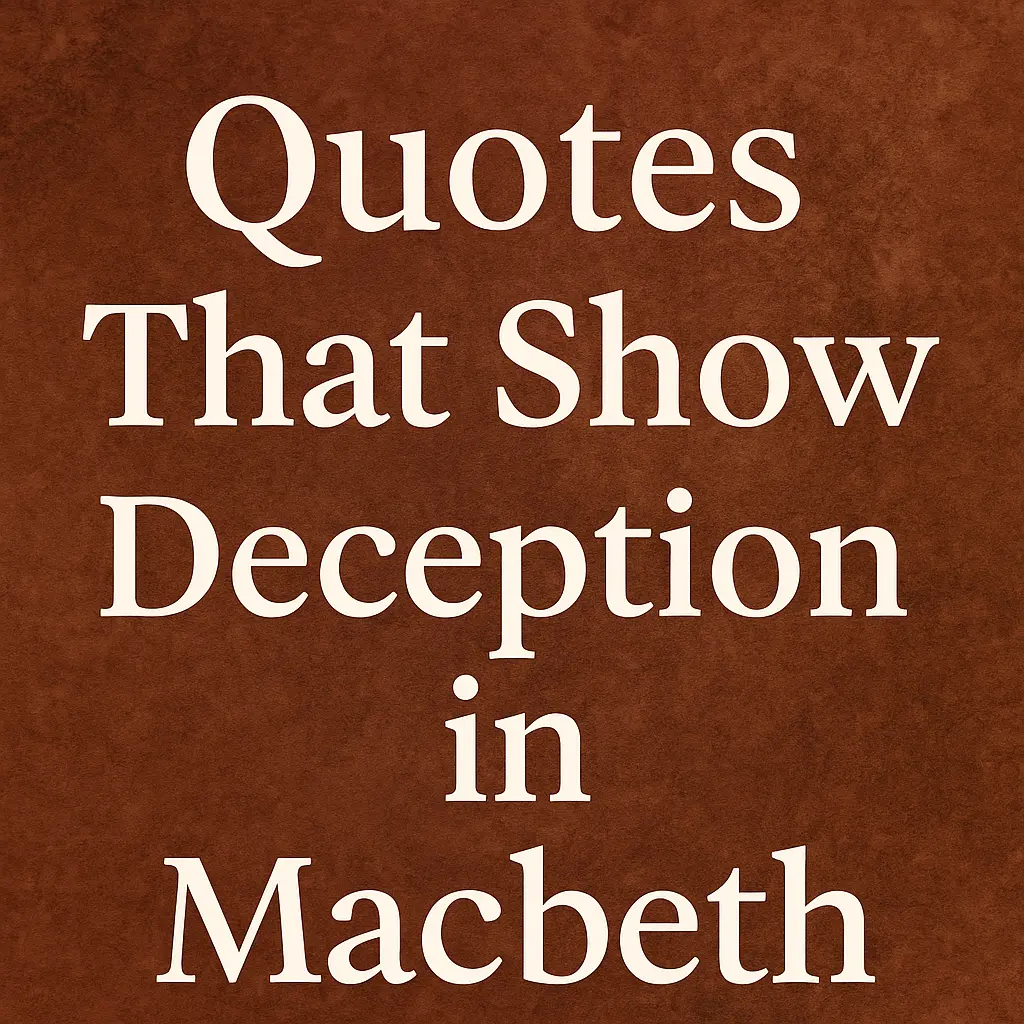Quotes That Show Deception in Macbeth
Shakespeare’s Macbeth is a masterpiece woven with treachery, illusion, and betrayal. One of the central themes that echo throughout the play is deception—the act of hiding one’s true intentions beneath a veil of appearances. Whether it’s through Macbeth’s manipulation, Lady Macbeth’s cunning words, or the witches’ double meanings, deception drives the story from ambition to downfall.
Let’s break down some of the most iconic quotes that capture this theme and unpack how they reveal the deceptive nature of the play and its characters.
1. “Fair is foul, and foul is fair.” – The Witches (Act 1, Scene 1)
This opening line from the three witches sets the tone for the entire play. It suggests that things are not what they seem—what appears to be good is actually evil, and vice versa. It’s the ultimate warning about deception, indicating that the characters (and even the audience) should not trust appearances.
2. “So foul and fair a day I have not seen.” – Macbeth (Act 1, Scene 3)
This line, spoken by Macbeth after his victorious battle, mirrors the witches’ earlier paradox. On the surface, he’s referring to the weather and the brutal battle he’s just fought. But symbolically, it shows his unconscious alignment with the witches’ deceptive worldview. He’s entering a world where truth and lies blur—and he doesn’t even realize it yet. This quote foreshadows his moral decline and the chaos to come.
3. “Look like the innocent flower, but be the serpent under’t.” – Lady Macbeth (Act 1, Scene 5)
This chilling advice to Macbeth encapsulates the idea of hiding true intentions behind a mask of kindness. Lady Macbeth knows that in order to get the throne, they must deceive those around them. Her words turn appearance into a weapon—something to manipulate and control others.
4. “There’s no art / To find the mind’s construction in the face.” – King Duncan (Act 1, Scene 4)
Ironically spoken just before he praises Macbeth, this line highlights Duncan’s tragic flaw: he trusts too easily. He admits that one cannot read someone’s true thoughts just by looking at them—yet he still places his faith in Macbeth, who is already plotting against him. This quote painfully shows how deception can thrive in trust.
5. “False face must hide what the false heart doth know.” – Macbeth (Act 1, Scene 7)
By this point, Macbeth has fully accepted deception as necessary. He knows his heart is dark with the intention to murder Duncan, and now, he must act the part of a loyal subject. This quote marks his descent into full-fledged duplicity, showing the internal conflict between his public and private self.
6. “And oftentimes, to win us to our harm, / The instruments of darkness tell us truths.” – Banquo (Act 1, Scene 3)
Banquo warns Macbeth not to be deceived by the witches. He understands that evil can manipulate people by telling them partial truths—a powerful form of deception. His insight contrasts with Macbeth’s ambition, making this a key quote that reveals the danger of being seduced by lies.
Conclusion: Deception as Macbeth’s Undoing
From start to finish, Macbeth is drenched in deception. The characters wear masks, speak in riddles, and chase illusions. Macbeth, who begins as a loyal hero, falls victim to the very lies he helps create. His famous line, “So foul and fair a day I have not seen,” serves as the first step down a twisted path of confusion where right becomes wrong, and truth becomes a tool for manipulation.
Ultimately, Shakespeare shows us that deception doesn’t just fool others—it corrupts the soul of the deceiver.
You can also know from quora







